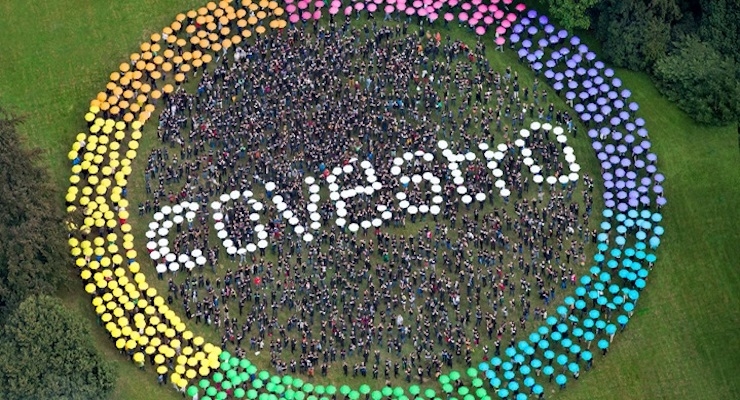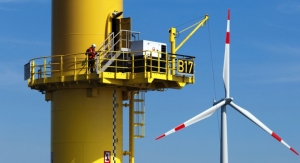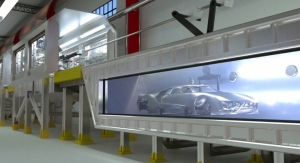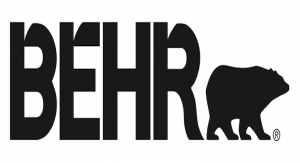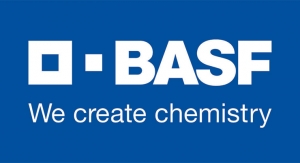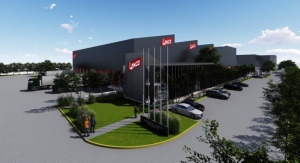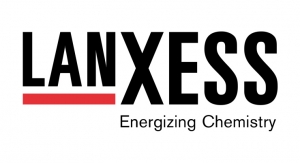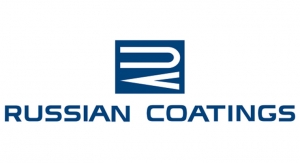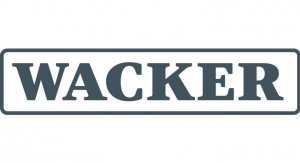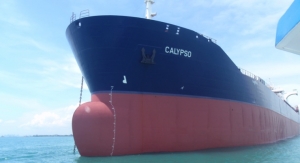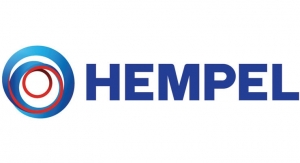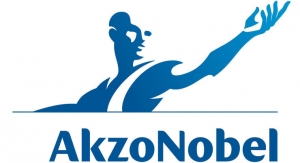07.26.18
Covestro’s group sales grew 10.4 percent compared with the prior-year quarter to €3.9 billion due to higher selling prices and increased demand. Core volumes were up 4.4 percent, with all three segments contributing with positive growth rates. EBITDA improved by 16.2 percent to €985 million. At €604 million, net income was 24.8 percent higher than in the prior-year period. Free operating cash flow increased by 14.1 percent to €364 million.
“There is sustained demand for our products worldwide, proving our strategy to further pay off as our products serve important global trends,” CEO Dr. Markus Steilemann said. “We improved all key figures in the second quarter. Thanks to this strong performance, we are raising our guidance for the full year.” That applies to EBITDA, FOCF, and ROCE.
“In order to maintain growth in the long term, we will also further increase investments,” Steilemann continued. The investment program includes expansion of production in all three segments at various locations in all regions. For instance, significant expansion of global film production with an investment of around €100 million has been announced to meet sharply rising demand. At the site in Tarragona, Spain, around €200 million is being invested to build an own chlorine production and extend the present facilities for the rigid foam precursor MDI. In addition, MDI capacity in Brunsbüttel, Germany, and the polycarbonate production in Caojing, China, are being extended.
“We see solid growth in our main customer industries and are raising investments to €650–700 million this year,” CFO Dr. Thomas Toepfer added.
In the next three years, these annual capital expenditures (CapEx) are to be increased further up to €1.2 billion. That will allow targeted expansion of production capacity as well as the construction of new facilities.
There are currently signs that market prices are normalizing in some product areas, especially for the flexible foam precursor TDI.
“Our goal is, therefore, to reduce the cyclicality of our product portfolio even further and to continue our successful development,” Toepfer said. This is to be achieved primarily through additional highly differentiated applications, for example, for the automotive, electronics and healthcare sectors.
Since sustained high demand is expected in the main customer industries in the midterm, core volume growth of around 4 percent per year is projected. The company, therefore, plans to continue to grow faster than the global gross domestic product (GDP). At the same time, Covestro is monitoring the present geopolitical uncertainties.
Covestro’s share buy-back program has made further progress and the second tranche was launched in the second quarter. So far, shares for a total amount of more than €800 million (around five percent of the capital stock) have been repurchased. Overall, Covestro aims to buy back own shares totaling up to €1.5 billion, or up to 10 percent of its capital stock by mid-2019. Earnings per share climbed by 28.5 percent to €3.07, partly as a result of the ongoing share buy-back program.
Covestro is raising its forecast for EBITDA, FOCF, and ROCE in 2018. The company now expects that EBITDA for the fiscal year will be above the previous year’s level and FOCF will be more than €2 billion. ROCE is now expected to be around the 2017 level. Covestro still anticipates core volume growth in the low to mid-single-digit percentage range in 2018. As always, this forecast is based on a normal GDP environment. In the third quarter of 2018, EBITDA is expected to be around the prior-year level.
Sales of the Polyurethanes segment rose by 8.1 percent to €1,966 million in the second quarter of this year. Sales developed positively in all regions. Core volumes grew 3.9 percent in this segment, mainly due to the increase in the MDI product group, and the segment’s EBITDA increased 6.2 percent to €583 million.
The Polycarbonates segment registered particularly strong sales growth of 15.9 percent to €1,056 million in the second quarter, with the positive trend coming primarily from higher selling prices. Core volumes increased by 5.3 percent. In particular, the APAC region contributed to this rise. Polycarbonates grew EBITDA by 44.7 percent to €285 million.
The Coatings, Adhesives, Specialties segment also posted a significant improvement compared with the prior-year quarter, with sales rising 4.1 percent to €629 million. Core volumes for Coatings, Adhesives, Specialties rose 5.8 percent, the highest growth rate of the three segments. EBITDA was 14.9 percent higher at €139 million.
Group sales rose 7.9 percent year-on-year to €7.6 billion, driven principally by higher selling prices across all three segments. Group-wide, core volumes rose 2.2 percent year-on-year in the first six months. EBITDA grew 20.9 percent to around €2 billion, primarily driven by earnings growth in the Polyurethanes and Polycarbonates segments. Net income was €1.2 billion, a rise of 31.1 percent. FOCF increased by 37.4 percent to €728 million.
“There is sustained demand for our products worldwide, proving our strategy to further pay off as our products serve important global trends,” CEO Dr. Markus Steilemann said. “We improved all key figures in the second quarter. Thanks to this strong performance, we are raising our guidance for the full year.” That applies to EBITDA, FOCF, and ROCE.
“In order to maintain growth in the long term, we will also further increase investments,” Steilemann continued. The investment program includes expansion of production in all three segments at various locations in all regions. For instance, significant expansion of global film production with an investment of around €100 million has been announced to meet sharply rising demand. At the site in Tarragona, Spain, around €200 million is being invested to build an own chlorine production and extend the present facilities for the rigid foam precursor MDI. In addition, MDI capacity in Brunsbüttel, Germany, and the polycarbonate production in Caojing, China, are being extended.
“We see solid growth in our main customer industries and are raising investments to €650–700 million this year,” CFO Dr. Thomas Toepfer added.
In the next three years, these annual capital expenditures (CapEx) are to be increased further up to €1.2 billion. That will allow targeted expansion of production capacity as well as the construction of new facilities.
There are currently signs that market prices are normalizing in some product areas, especially for the flexible foam precursor TDI.
“Our goal is, therefore, to reduce the cyclicality of our product portfolio even further and to continue our successful development,” Toepfer said. This is to be achieved primarily through additional highly differentiated applications, for example, for the automotive, electronics and healthcare sectors.
Since sustained high demand is expected in the main customer industries in the midterm, core volume growth of around 4 percent per year is projected. The company, therefore, plans to continue to grow faster than the global gross domestic product (GDP). At the same time, Covestro is monitoring the present geopolitical uncertainties.
Covestro’s share buy-back program has made further progress and the second tranche was launched in the second quarter. So far, shares for a total amount of more than €800 million (around five percent of the capital stock) have been repurchased. Overall, Covestro aims to buy back own shares totaling up to €1.5 billion, or up to 10 percent of its capital stock by mid-2019. Earnings per share climbed by 28.5 percent to €3.07, partly as a result of the ongoing share buy-back program.
Covestro is raising its forecast for EBITDA, FOCF, and ROCE in 2018. The company now expects that EBITDA for the fiscal year will be above the previous year’s level and FOCF will be more than €2 billion. ROCE is now expected to be around the 2017 level. Covestro still anticipates core volume growth in the low to mid-single-digit percentage range in 2018. As always, this forecast is based on a normal GDP environment. In the third quarter of 2018, EBITDA is expected to be around the prior-year level.
Sales of the Polyurethanes segment rose by 8.1 percent to €1,966 million in the second quarter of this year. Sales developed positively in all regions. Core volumes grew 3.9 percent in this segment, mainly due to the increase in the MDI product group, and the segment’s EBITDA increased 6.2 percent to €583 million.
The Polycarbonates segment registered particularly strong sales growth of 15.9 percent to €1,056 million in the second quarter, with the positive trend coming primarily from higher selling prices. Core volumes increased by 5.3 percent. In particular, the APAC region contributed to this rise. Polycarbonates grew EBITDA by 44.7 percent to €285 million.
The Coatings, Adhesives, Specialties segment also posted a significant improvement compared with the prior-year quarter, with sales rising 4.1 percent to €629 million. Core volumes for Coatings, Adhesives, Specialties rose 5.8 percent, the highest growth rate of the three segments. EBITDA was 14.9 percent higher at €139 million.
Group sales rose 7.9 percent year-on-year to €7.6 billion, driven principally by higher selling prices across all three segments. Group-wide, core volumes rose 2.2 percent year-on-year in the first six months. EBITDA grew 20.9 percent to around €2 billion, primarily driven by earnings growth in the Polyurethanes and Polycarbonates segments. Net income was €1.2 billion, a rise of 31.1 percent. FOCF increased by 37.4 percent to €728 million.

